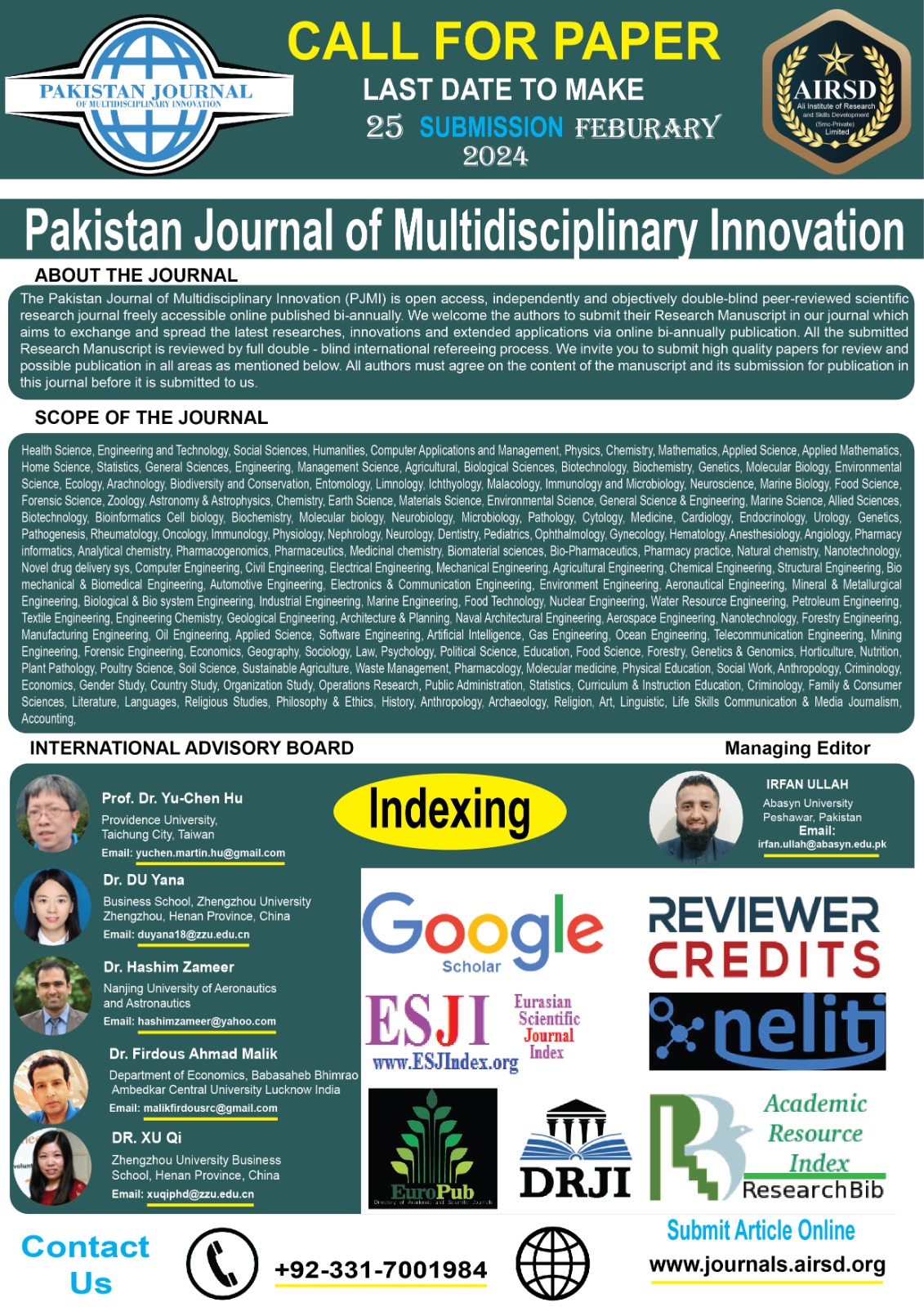A Critical Appraisal of Tax Evasion as Predicate Offence for Money Laundering
DOI:
https://doi.org/10.59075/pjmi.v1i1.32Keywords:
Tax Evasion, Money Laundering, Predicate Offence and Economic ImplicationsAbstract
Tax evasion and money laundering are two global problems that are devastatingly impacting the global economy, economic security, stability, and economic growth. The primary objective of this paper is to examine the link between tax evasion and money laundering by looking at their historical origins, basic features, strategies, and economic repercussions. Money laundering and evasion of taxes are organised financial crimes that are related to one other, either explicitly or implicitly. Laundering of money was once thought to be solely involved with trafficking of drugs and financing of terrorist activities. At this moment, it has also been connected to tax evasion. The connection between both crimes is not well understood. Tax evasion is regarded a predicate offence for laundering money in certain jurisdictions, whereas it is not in others. This study finds that evasion of taxes is one of the most common motivations for laundering money activities. Furthermore, in order to address these activities more effectively, this article suggests recognising tax evasion as a recognised predicate crime for laundering money.
Downloads
Published
How to Cite
Issue
Section
License
Copyright (c) 2022 Pakistan Journal of Multidisciplinary Innovation

This work is licensed under a Creative Commons Attribution 4.0 International License.
















